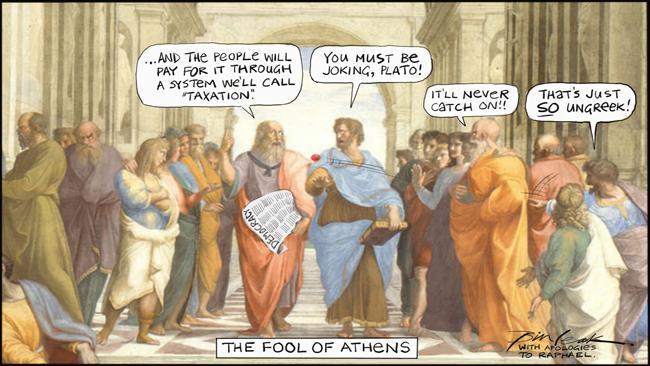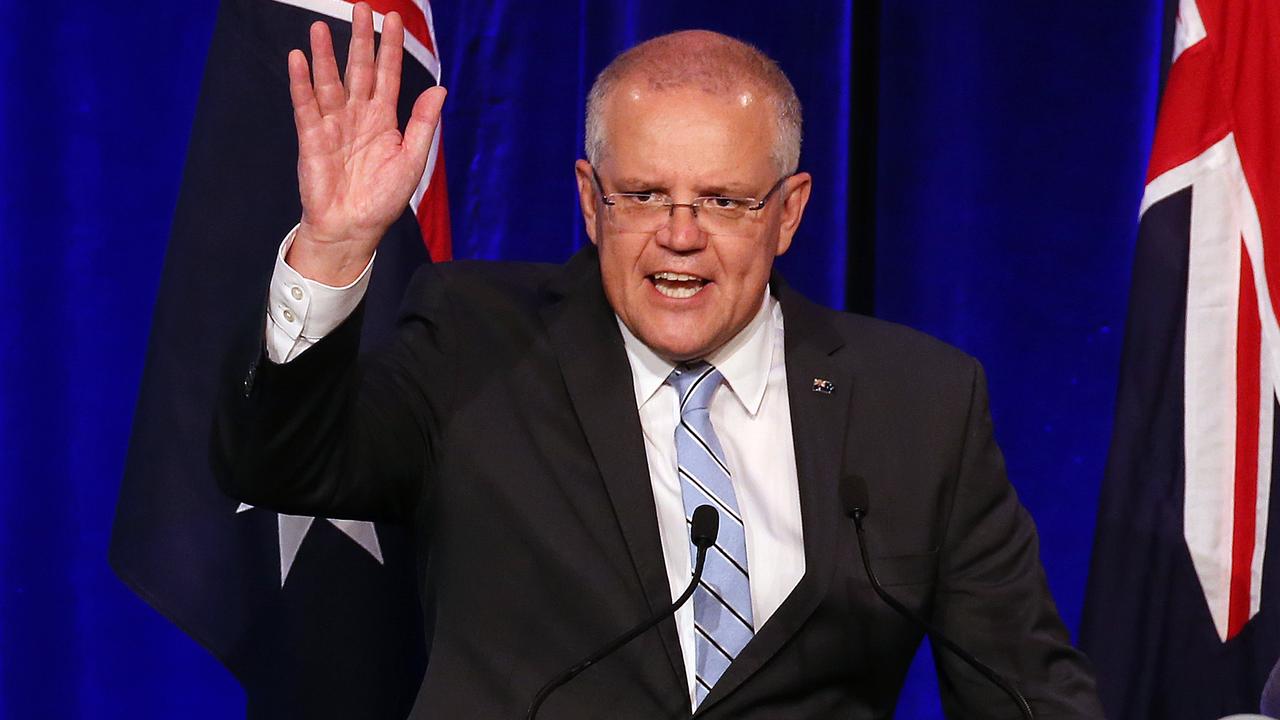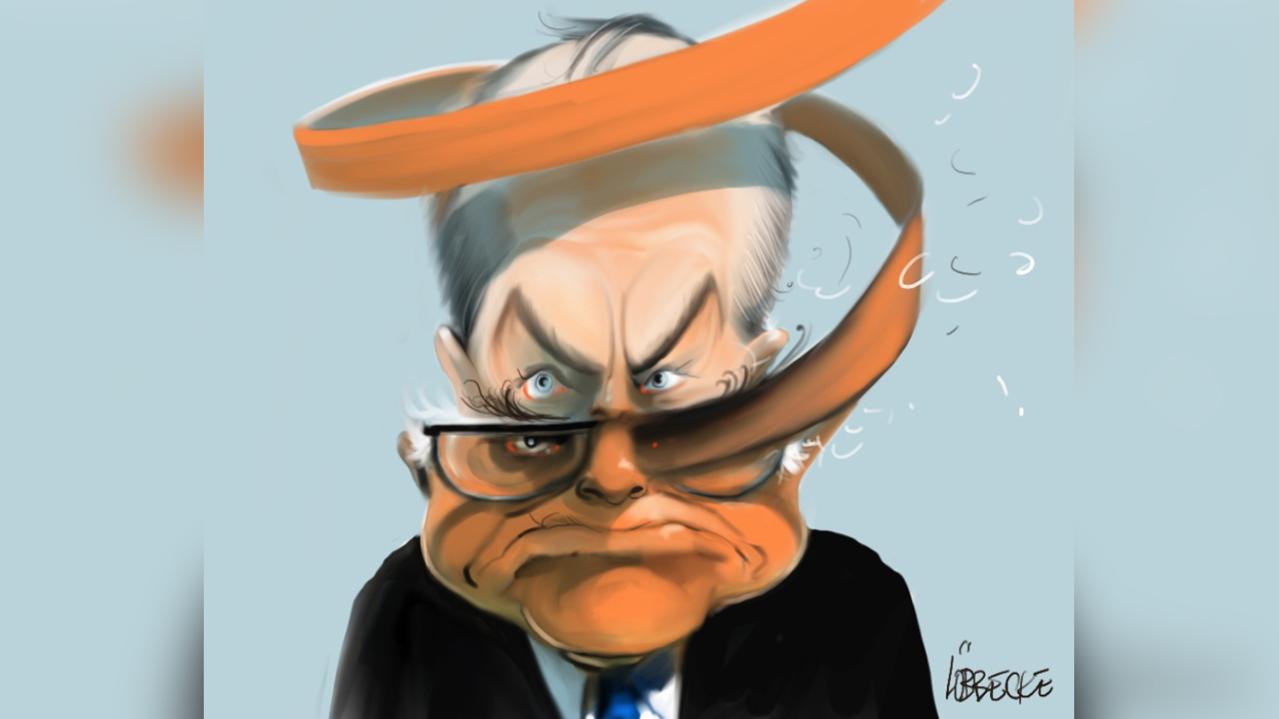Sick Labor marked down on health and education

HEALTH and education are policy areas the Labor Party has long been regarded anecdotally as better suited to managing than the Liberal Party. Of course the reality is more complex than that. Custodians of a strong economy, for example, of whichever partisan stripes, have more capacity to address challenges in any portfolio area because they will have the revenue needed to do so.
But the usual perception in the community is that Labor, with its social-values heritage, is likelier than the Coalition to look after the sick and those seeking a better education, whatever it is getting up to on the Treasury benches. Which is why the latest issues-based polling by Newspoll will be so worrying for Labor.
Despite pouring billions of additional funding dollars into health and education, despite tough rhetoric of the revolutionary kind and despite the Prime Minister having previously had carriage for one of this pair of portfolio areas, Labor is level-pegging with the Coalition as to which party is better able to manage health and education.
When Labor came to power in late 2007, the first issues-based Newspoll was conducted the following February. Health and education topped the list as the issues voters considered most important, which is still the case, even though both policy areas are little talked about these days. But, in the eyes of voters, Labor's ability to manage each has slipped badly, despite Coalition policy in both areas being almost nonexistent.
In February 2008, 52 per cent of voters favoured Labor to manage health issues; only 24 per cent favoured the Coalition. The story was much the same for education: 57 per cent v 22 per cent.
Earlier this month Newspoll showed community attitudes had shifted significantly. The parties were 37 per cent apiece on health management credentials, 38 per cent to 35 per cent on education (narrowly favouring Labor).
The changed results speak to just how difficult political recovery for this government will be.
Right now it is focusing attention on the carbon tax and the economy and, like it or not, asylum-seeker issues are also up in lights. Winning these arguments is tough for Labor, as has long been the case. The latter two are traditional Coalition areas of strength. The first issue is toxic for anyone seeking serious action, much less for a PM who pledged not to introduce a carbon tax just days before the previous election.
But if Labor is also struggling in its traditional areas of health and education, it doesn't leave the party with much in the way of alternative policy areas into which it can shift the debate.
Newspoll has become the bread and butter of political analysis for many casual observers. It gives a fortnightly reading of how the parties and their leaders are travelling.
Politicians love it when they are out in front because it ensures momentum. They loathe it when they fall behind because poor form on the Newspoll guide can become a self-fulfilling prophecy.
Whatever you think of the usefulness or otherwise of Newspoll's fortnightly party and leader indicators, or its sometimes distorting effect on the political debate, the issues-based Newspoll, which is conducted less frequently, usually only once a year, carries profound indicators for the parties.
Given the quagmire over carbon pricing and border protection, not to mention the pokies reform independent Tasmanian MP Andrew Wilkie is insisting on if the government wants his ongoing support, it is easy to forget key planks on which Labor fought the 2007 election. That, after all, was the election that last ushered in a change of government.
Climate change was Kevin Rudd's great moral challenge, and scrapping Work Choices gave Labor the edge it needed over John Howard. But the "revolution" was to be in education, and Labor told us it would fight the states all the way to a referendum if it needed to in order to seize control of an ailing health system.
Reality fell well short of the rhetoric on both counts. Julia Gillard was put in charge of the so-called education revolution, but the main take-out anyone noticed from the big-spending agenda was the establishment of the My Schools website. A good initiative, to be sure - creating more accountability - but underwhelming given the rhetoric.
The education portfolio is split between three ministers, all of whom are seen as damaged goods: Peter Garrett, who has carriage of the schools end of the portfolio, was wounded by the pink batts saga during the Rudd years; Chris Evans is responsible for higher education but as immigration minister unwound offshore processing, which put Labor in the asylum mess it is now in; Kim Carr has carriage of innovation, rather important in the education space, but he is a left-wing factional warrior, hardly ideologically predisposed to innovation in our modern market economy.
Besides, Carr is widely believed to be too busy plotting Gillard's downfall to focus attention on educational outcomes. Not the best recipe for prime ministerial co-operation in this important policy space.
Gillard had the chance to define herself as the education Prime Minister when she took over from Rudd. Instead the "real Julia" never emerged and she has let the issues of the day define her.
Health reform was potentially Rudd's greatest endeavour. Away from the rhetoric on climate change the former prime minister's personal health issues through the years were supposed to be a catalyst for meaningful reform.
Despite tipping billions of dollars into the system, what has been served up is little more than tinkering on the margins and it is still incomplete. The pledge to fix our hospitals was downgraded to improving them on the government's website.
Health Minister Nicola Roxon's hard work came to little; instead she has been defined by nanny-state endeavours on alcopops, plain packaging of cigarettes and junk-food labelling.
The Coalition has done next to nothing in these two policy areas during its stint in opposition. Its aim has simply been to keep attention elsewhere. For it to be matching Labor on health and education lends weight to the adage that oppositions don't win elections, governments lose them.
Political support for Labor is sick and, at the moment, the issues are defining it, not the other way round. But according to Newspoll, even if Labor returned to its traditional stamping grounds, the public has already lost faith in its management credentials.
The death roll has started early in this term.
Peter van Onselen is a Winthrop professor at the University of Western Australia.


